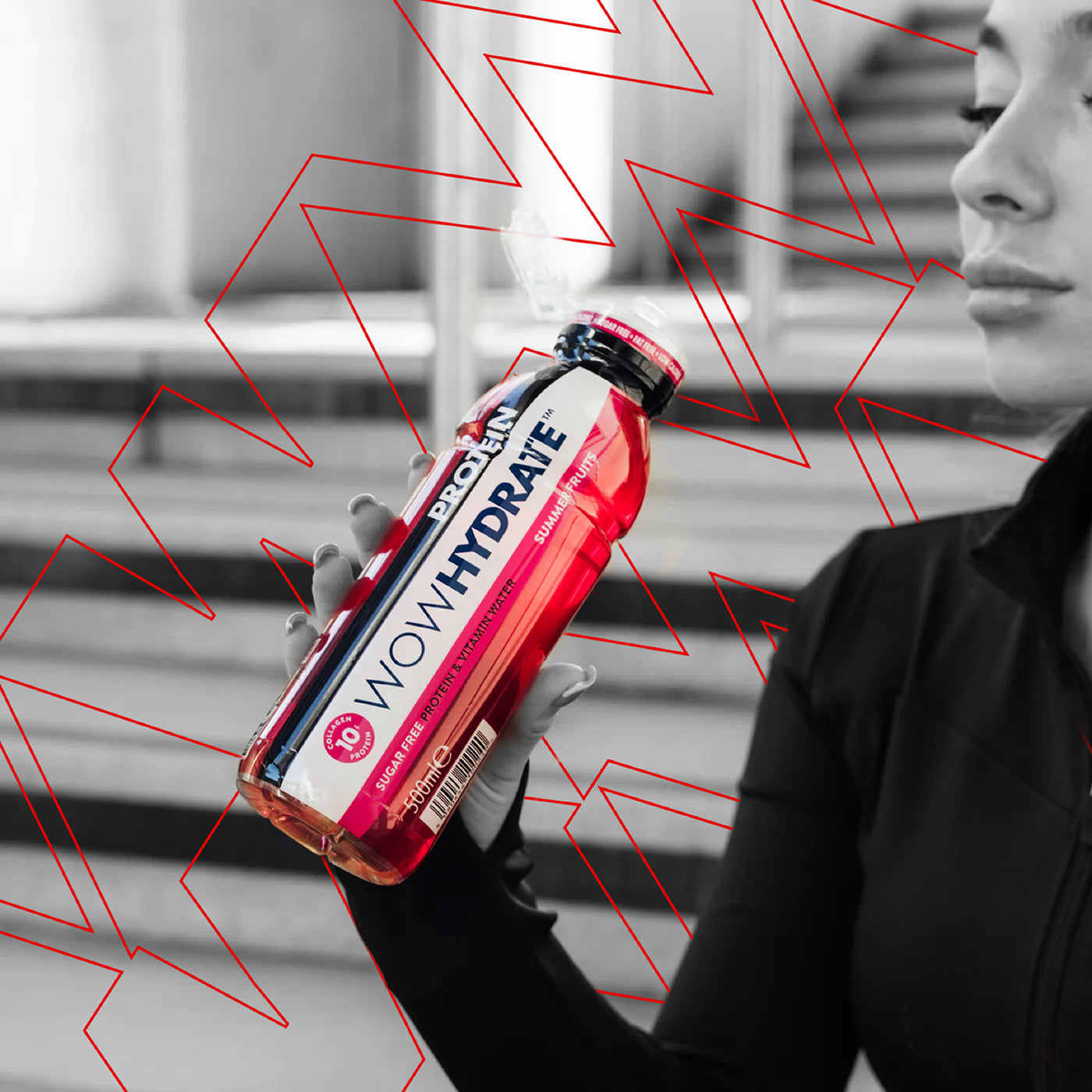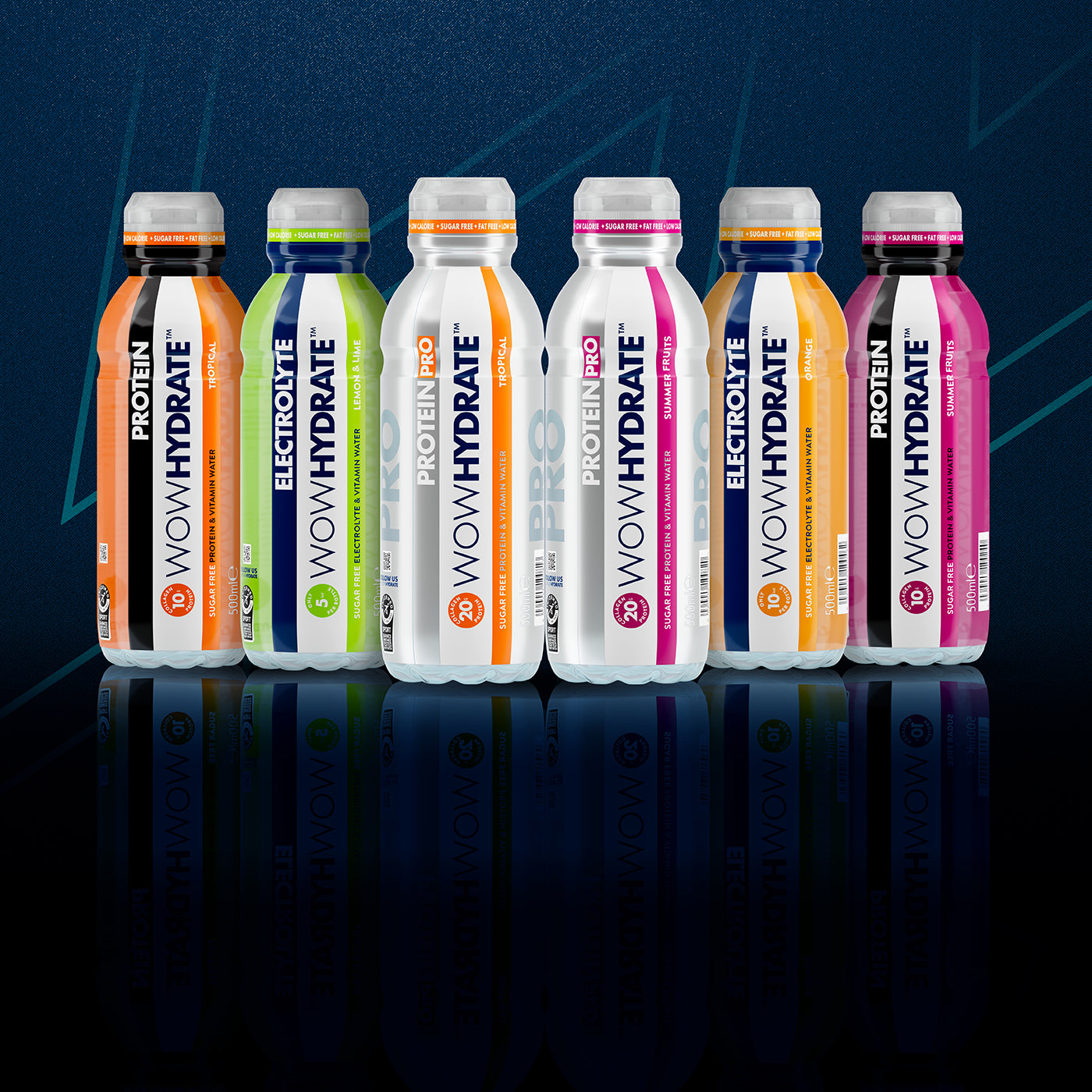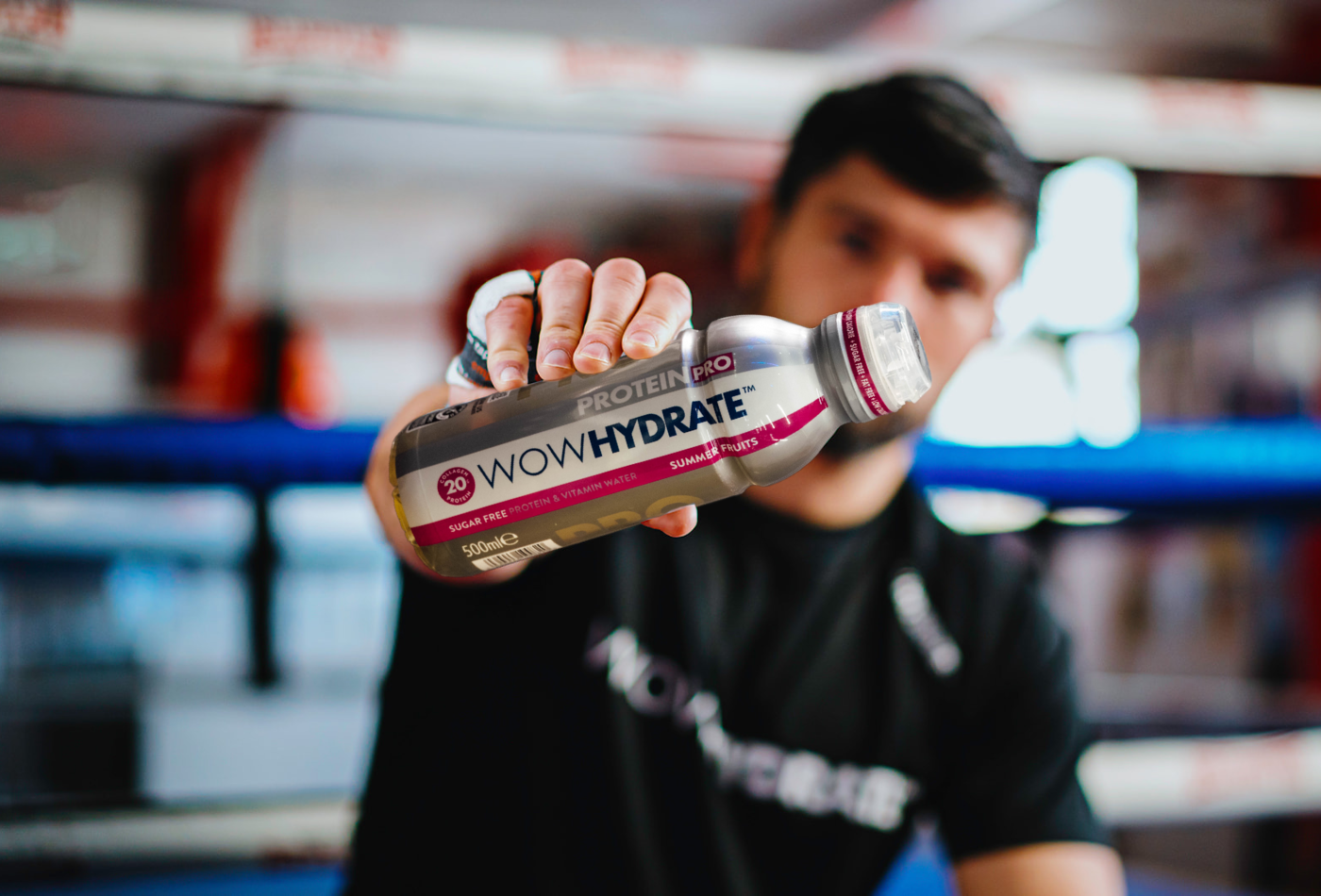Written by Richard Staveley, WOW HYDRATE's Global Head of Marketing and in-house marathon running expert.
In the early hours of this Sunday, I’ll be hightailing it across the City, heading towards Blackheath to line up once again at the start of the London Marathon. Having run it for the first time last year, I think I know what to expect – but the build-up this time around has been a completely different story.
Last year, I followed what most people would call a textbook approach: a structured 16-week training block, prescribed by the brilliant Runna app, and guided by having a clear goal time. Although I was battling plantar fasciitis at one point, with help from a great physio I made it to the start line feeling ready and confident. I logged close to 500 kilometres in training. The result? A sub-target finish and a sense of genuine accomplishment. Not just for the time, but for the wonderful charity I was running for.
And this year? I think it’s fair to say it’s been more ‘chaotic good’ than carefully planned.
I got a last-minute call from the same charity asking if I’d be willing to step in after a couple of people dropped out. With just five weeks to go, and a 10-day beach holiday thrown in, it was never going to be perfect. Although I couldn’t resist saying yes (for those who have experienced it, the London Marathon atmosphere is seriously infectious!), it’s safe to say I’ve run far less than last year. As of now, my training mileage is less than half of what it was this time last year. But I’m still turning up.

What impacts your training time needs?
Here’s the thing – how much time you’ll need to train depends on a few key factors.
- First up, your running experience. If you’ve smashed a few 5Ks or 10Ks before, you’re probably ahead of the game compared to someone starting fresh. Then there’s fitness. If you’re already active and running regularly, you’ve got a solid foundation.
- Time is another biggie – how many days a week can you realistically fit in runs and recovery? Consistency is what really counts here. And what about your goals? Are you looking to just cross the line or aiming for a new personal best?
- Lastly, think about your health. If you’re coming back from an injury or have medical stuff going on, it’s smart to give yourself extra time and maybe chat with a pro.
So… how long does it actually take to train?
The classic answer is it depends. But here's how I'd break it down:
- First-timers: If you’ve never run long distances before, a 16 to 20-week plan is ideal. It gives you time to build up slowly, gives you the best chance of avoiding injury, and develops the physical and mental resilience to go the distance.
- Intermediate runners: If you’ve done a 10K or half marathon, a 12 to 16-week block can be enough, depending on your current fitness level.
- Experienced runners: You might be able to get marathon-ready in 8 to 12 weeks, especially if you’ve kept a solid base and you're training smart. That said, this year I’m attempting it off even less, which I wouldn’t exactly recommend, but it shows what’s (just about) possible when you’ve got decent fitness, experience, and a strong ‘why’ behind you.
What I’ve learned this year is that it’s not always about the perfect plan – it’s about doing what you can, consistently, and giving yourself permission to adapt along the way.
Training Smart When Time Is Short
Training smart is just as important as training hard. Avoid setbacks by prioritising the following:
- Quality over quantity: A few solid runs a week, including a long run, a tempo session, and an easy recovery jog goes a long way.
- Cross-training counts: I leaned into cycling and strength work to give myself a break from running after the last marathon. I hope (and believe) the additional strength I’ve gained in my legs will support me out on the course and stave off injury.
- Recovery is key: When you’re cramming sessions into a shorter window, recovery becomes even more important. That means stretching, fuelling well, and staying hydrated.
Life’s unpredictable, and that’s totally fine! If you need to shift a run, take an extra rest day, or tweak your schedule, go for it. I do it all the time. Remember the aim isn’t to be perfect – it’s to keep showing up and staying consistent.
Need a little extra motivation? Try using apps (I like Strava, the classic, but I’ve run with people who love Zombies Run, so use whatever helps you move), following a structured plan, or joining a running group. I’m more of a solo runner for training myself, but a lot of runners swear on groups for keeping you on track and making the process more fun. Takes all sorts.
That said, if you’ve been injured, have health concerns, or haven’t been active for a while, it’s always a good idea to check in with a doctor before jumping into marathon training. Better safe than sorry, and all that.

Fuelling your run
Nutrition and hydration aren’t just nice-to-haves – they’re the bedrock of good training and speedy recovery. Nail this, and you’ll have the energy to smash long runs, stay strong on race day, and bounce back quicker afterwards.
- Carbs are your main fuel. If you’re running for over 90 minutes, shoot for 30–60g per hour to keep yourself powered up. Oat bars are a winner for me here.
- Protein is your muscle’s best mate, repairing and building as you train. A steady daily intake is key for recovery too. I’m a boiled eggs and peanut butter man myself but there are plenty of other options.
- Electrolytes (like sodium, potassium, and magnesium) stop cramps, aid hydration, and help you run smoothly.
- Water is non-negotiable. Aim for 350–500ml per hour, and throw in some electrolytes for runs longer than an hour.
Hydration is the #1 underrated marathon training tool
Hydration might seem like a race day concern, but it’s actually training essential, especially on long runs. Dehydration of just 2% can start to affect performance. That’s why I’m using WOW HYDRATE's sports drinks (and not just because I work here) - they’ve genuinely made it easier to hydrate optimally and recover after training.
The drinks are simple, effective, and convenient. Which is exactly what you need when you’re squeezing training into already full days.
Finally…
No two marathon journeys are the same, and that’s the point. Whether you’re months into a carefully crafted training block or winging it off a beach holiday, the key is to stay consistent, listen to your body, and not panic when things don’t go to plan.
Running a marathon is a privilege. It’s a celebration of resilience, not perfection. So, whether you’re aiming to PB or just make it to the finish line upright, embrace the journey.
And if you’re running this weekend – best of luck. We’ve got this.

Bonus: busting marathon myths
Myth: You need to run 20+ miles in training.
Fact: Long runs of 16–18 miles, done consistently, are enough for most runners.
Myth: Carb-loading is all about pasta overload.
Fact: A 3-day depletion/load strategy (reducing carbs before reintroducing them) maximizes glycogen stores for race day better than endless pasta feasts.
Bonus: marathon training FAQs
“Can I train for a marathon in 12 weeks with 10K experience?”
Yes, 12 weeks can work if you’re already running consistently and build long runs safely.
“How many rest days should I take each week?”
Most plans recommend one or two rest days to aid recovery and avoid burnout.
“How can busy parents train for a marathon?”
Stick to 3–4 key runs a week. Short, efficient sessions work great when time is tight.
“What are signs I should hold off on increasing mileage?”
Persistent fatigue, soreness, poor sleep, or heavier-than-usual runs are red flags.









Leave a comment
This site is protected by hCaptcha and the hCaptcha Privacy Policy and Terms of Service apply.